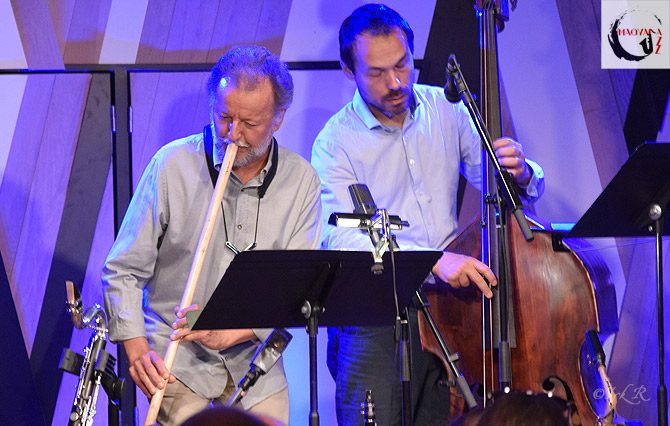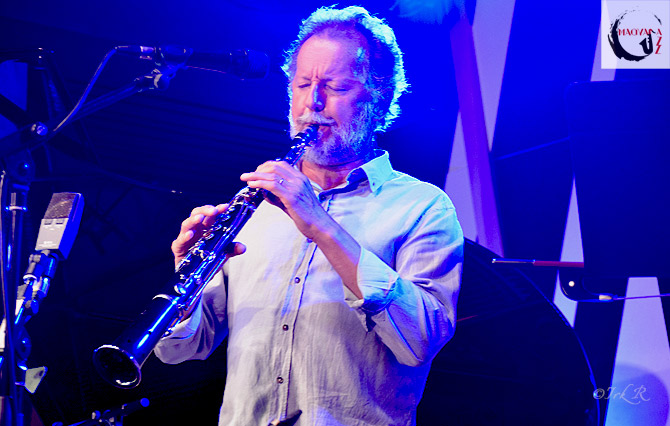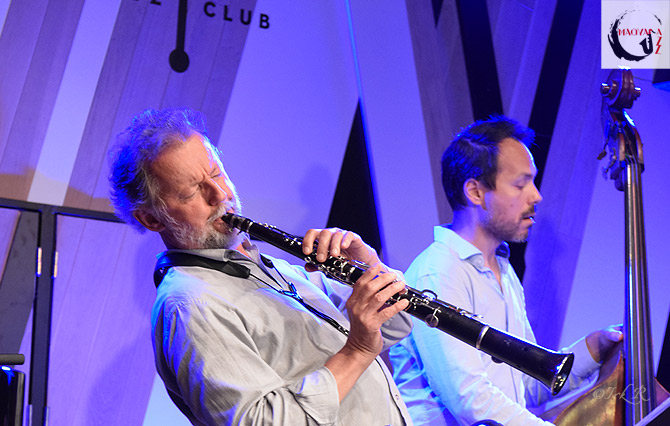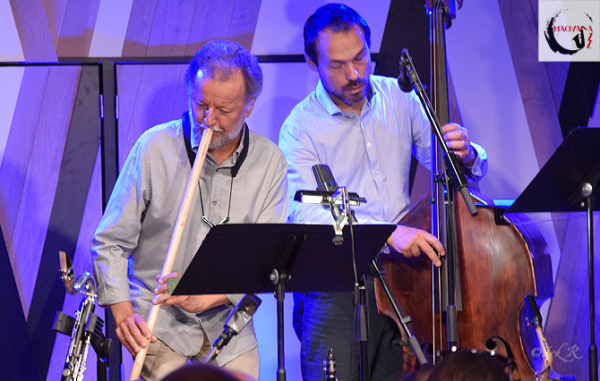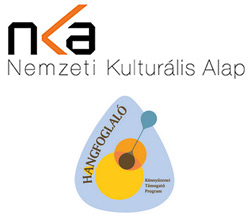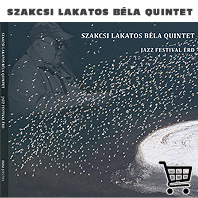
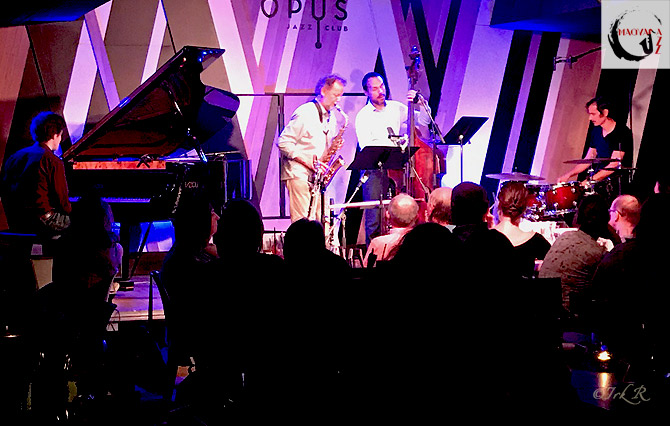
The show began with frontman Borbély playing a traditional Hungarian refrain from the blue-lit empty street-level seating area and treading down the stairs and through our basement dining area to join his bandmates who had arrived from backstage. Then pianist Áron Tálas began plucking directly at the strings while a tinkling of wine-glass percussion from diners up front served as a prelude to a wide-ranging, high-intensity musical conversation in the idiom of Hungarian world-music jazz by a group of “woke” instrumentalists whom several months of enforced isolation had done nothing to if not to power up their finely-attuned trans-personal skills
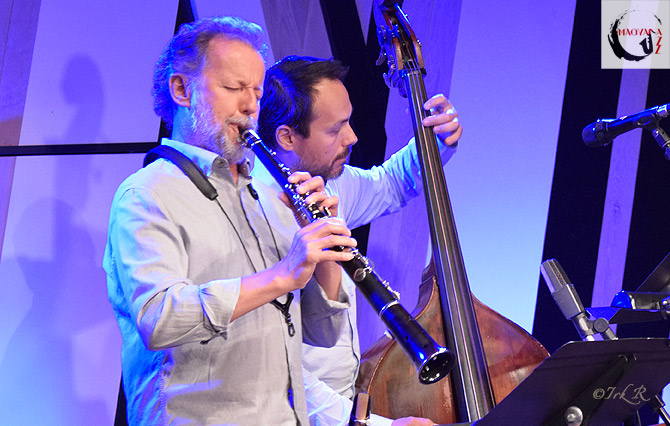
From stage left, bassist Balázs Horváth and drummer Hunor G. Szabó demonstrated a solid command of their instruments and a tight relationship with each other. I was touched by the way that each of them tenderly underscored his fellow’s main solo with a soft unobtrusive rhythm, evincing a sensitivity that was also extended to the other players throughout the concert. And from stage right came the masterful piano-playing of Tálas, who may make as great a name for himself in the jazz world as did one of his musical heroes, Bill Evans, whose influence on his playing seemed quite evident to this appreciative listener. Tálas is credited as composer of some of the songs on the playlist, and in performance, he comes across as an authoritative co-narrator of the band’s musical journey, at times handing off a melodic phrase to his senior to spin into something wondrous. And in one startling deviation from his melodic role, he joined in with the bass & drums, gleefully pounding out a thumping “da dum” to serve as a rhythmic springboard for one of Borbély’s soaring clarinet refrains.
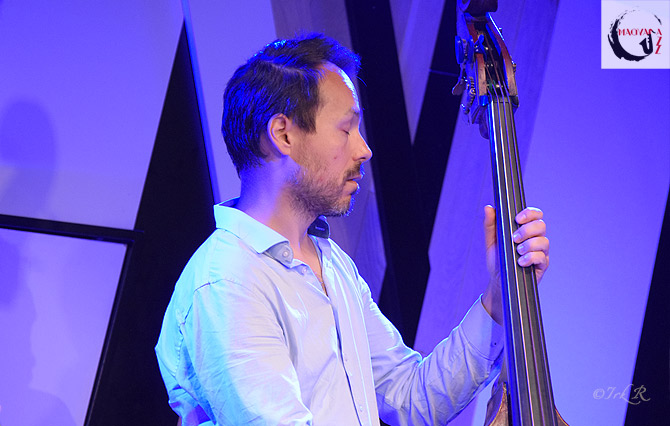
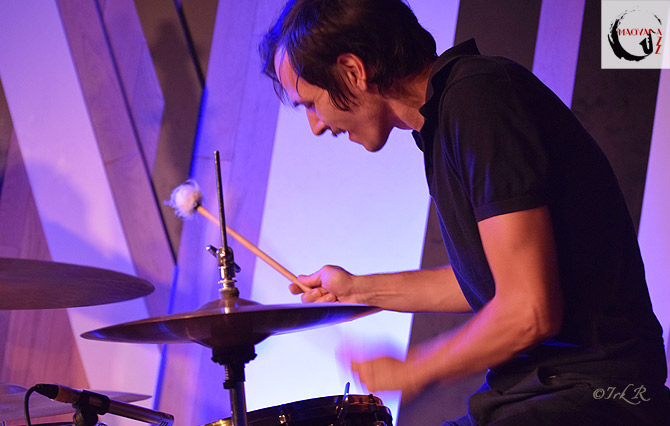
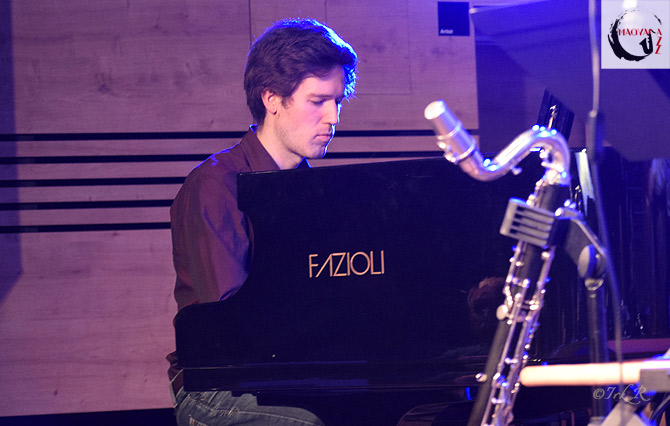
Here’s my own recurring image take-away of Mihály Borbély: his fit, taut frame center stage, springing upright from a double bent-knee pose with a gleeful smile, sharing his infectious delight with all of us through the expressive voice of one of a succession of wind instruments. These instruments, all played with equal facility, include the soprano and alto saxophone; the clarinet; the bass clarinet; the larger, deeper-pitched, Hungarian tárogató; a small double-barreled Serbian shepherd’s flute; a long light-coloured wooden flute; and a long dark pipe with no finger holes, from which a number of pitches can be elicited by varying the force of the blow through the slit at the top end, and another set by blocking the hole at the bottom. With all of these, in league with his facile combo, he paints an emotionally rich soundscape which to the ear of this listener includes and transmutes different musical genres, emotional currents, and cultural stages, celebrating the musical past and present in this region and beyond while keeping alive a faith in the evolutionary future of jazz music and by extension, of a thriving, sensitive, humane global culture.
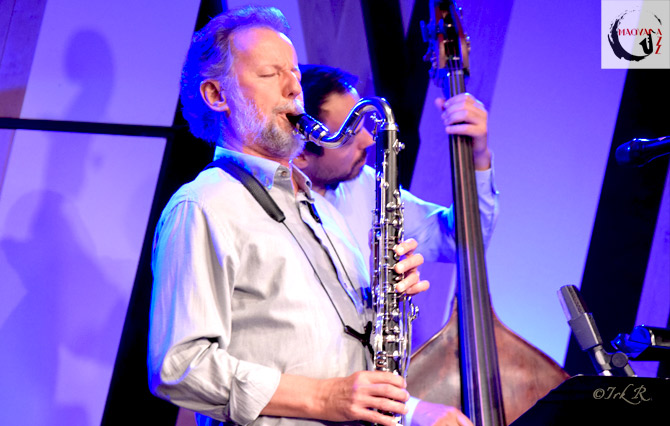
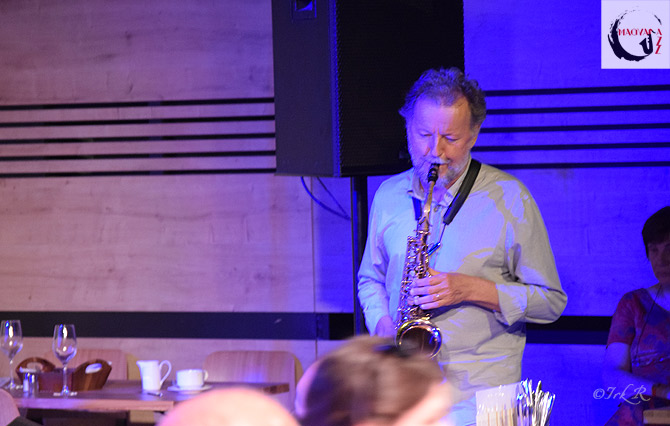
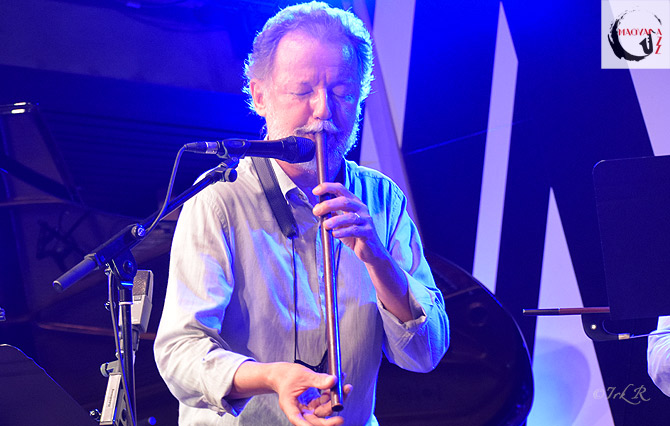
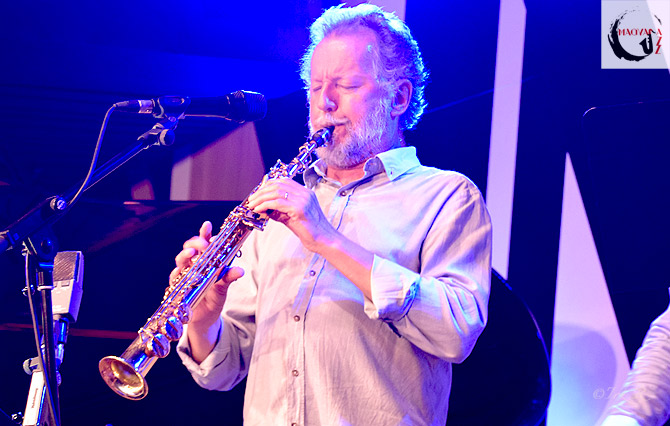
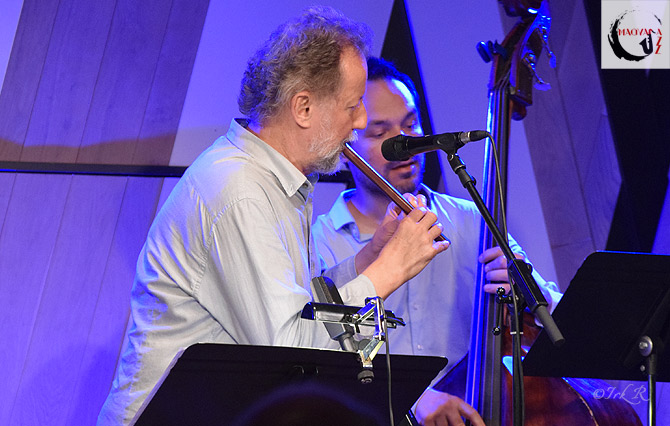
A powerful burst of familiar sounding melody led by the reeds near the end of the first set got an exceptionally strong response from the audience. A chat with my fellow reviewer during the intermission (confirmed later by a glance at the evening’s playlist) tipped me off that this section entailed Borbély’s transformation of legendary jazz guitarist Attila Zoller’s “Hungarian Jazz Rhapsody” (also the title of BM Quartet’s third album), directly followed by an adaptation of “Silver Summer” by stand-out 70’s rock band LGT (from this quartet’s award-winning fourth album, Be By Me Tonight). As I experienced it in this concert, their music is a rich eclectic mix, blending classical strains of Bartók and Liszt and Turkish refrains reminiscent of Rimsky Korsakov with Central European folk tunes and popular music favorites, amalgamated with a liberal dose of improvisation.
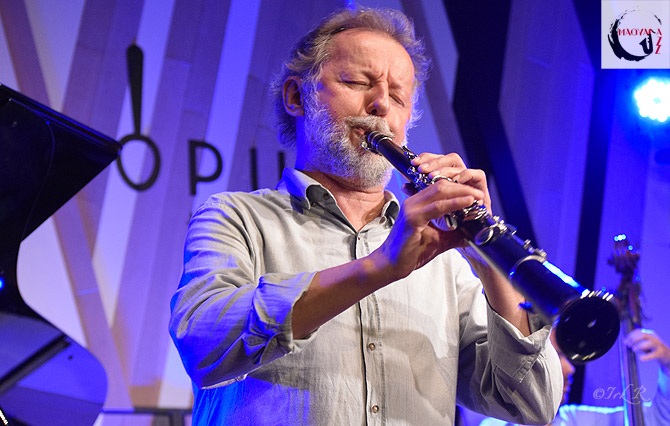
Granted, I haven’t been out much this year, but I’ll nevertheless stick my expatriate neck out and suggest that this performance could, in my estimation, very well qualify as “concert of the year”, following up on the last time they received this award. My brief experience of this remarkable band of kindred spirits, both on and off stage, is of generous, good-willed, open-hearted folk, lifelong students of the best of world musical culture and celebrants and practitioners of the best of their own: people who manage through their music to remind all of us what it can feel like, look like, and sound like to become highly evolved human beings. My heart is filled with gratitude at having been able to share an evening with them.
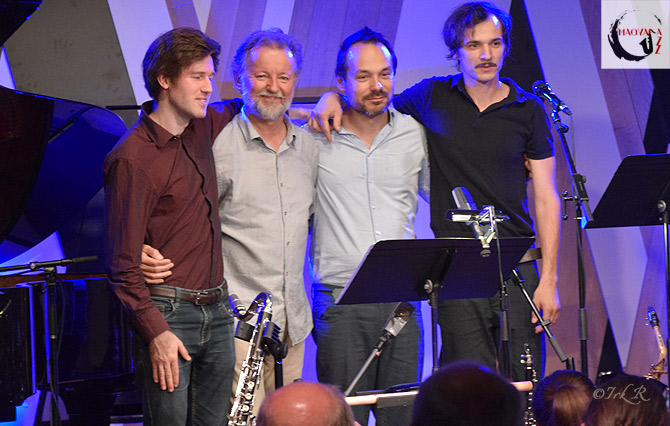
Opus Jazz Club, 2020. július 1.
Fotó: Irk Réka
Programajánló: https://magyarjazz.hu/koncertek
